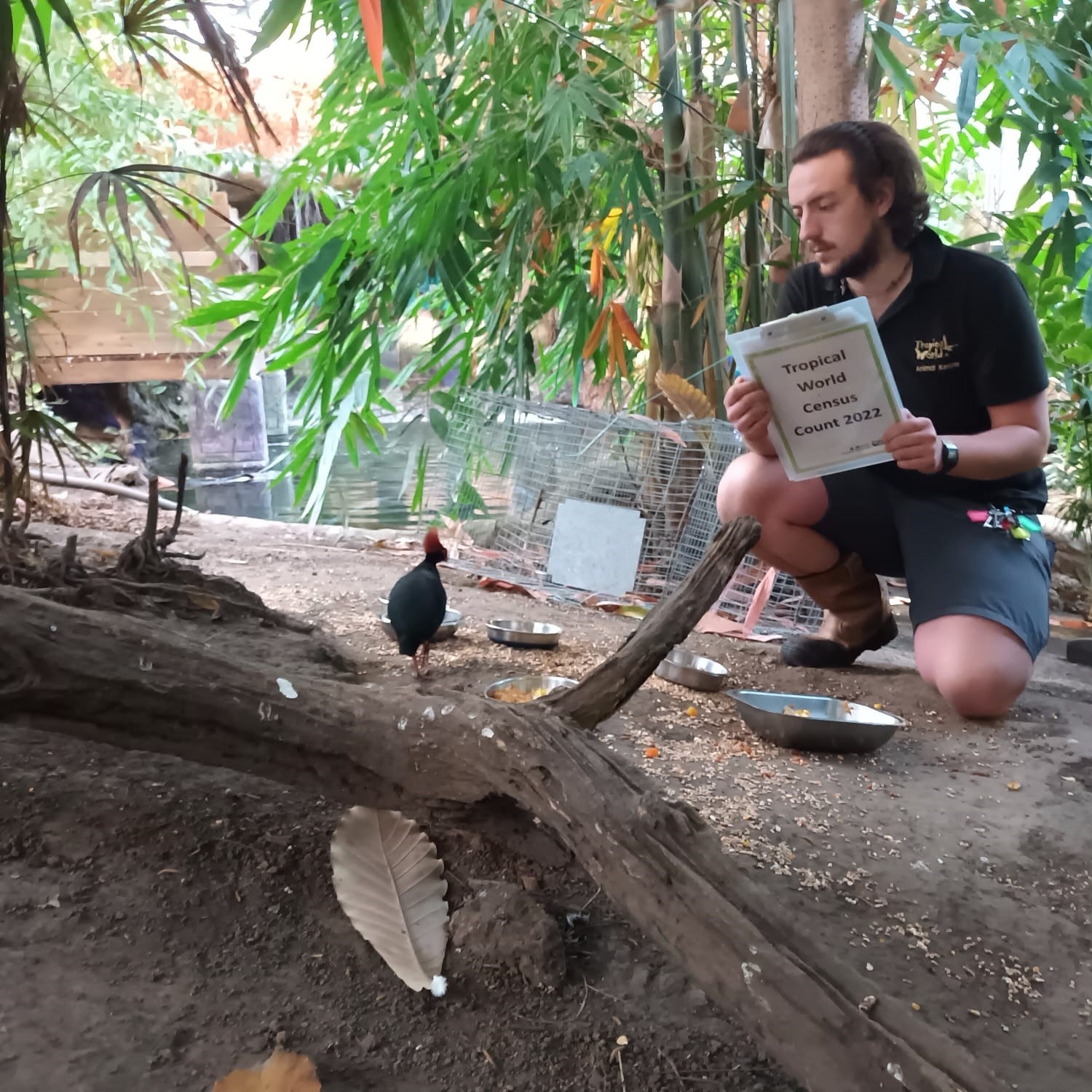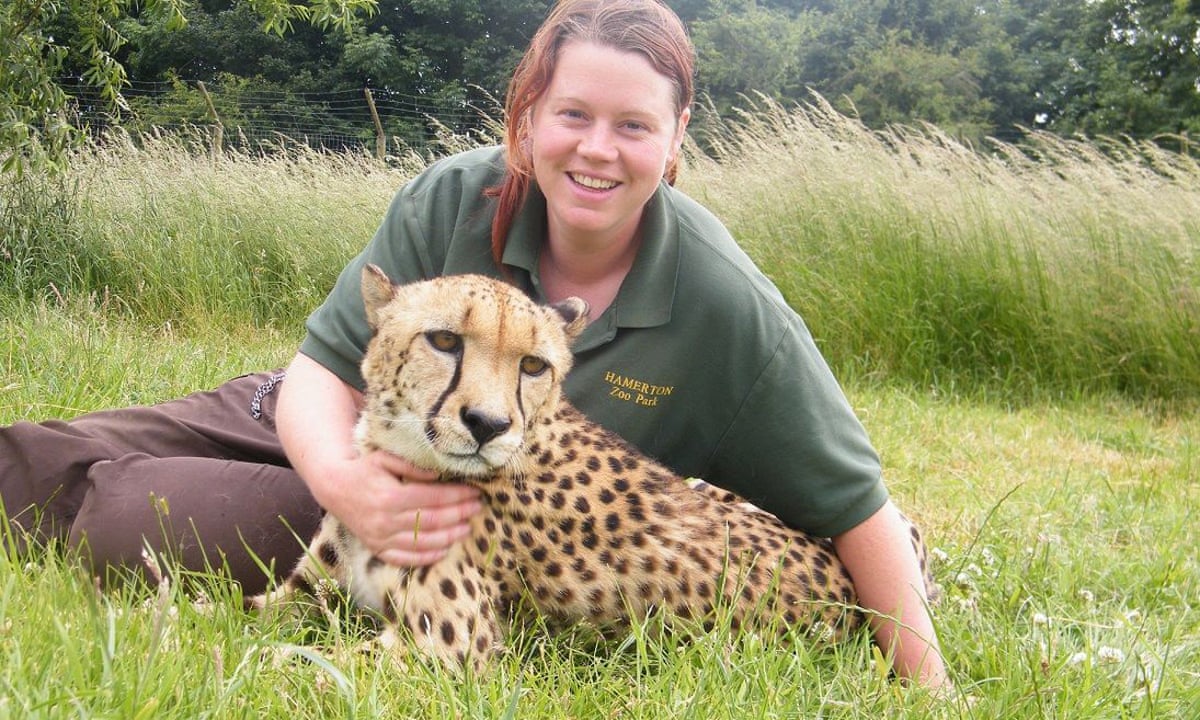How To Become A Zoo Keeper?
페이지 정보

본문
"The greatness of a nation and its ethical development can be judged by the way its animals are treated." - Mahatma Gandhi

Do you like animals and imagine operating in a zoo? Zoo keepers are type in safeguarding wildlife and caring for animals. At places like the Zoological Society of London (ZSL), over 20,000 animals get the care they need from specialists.

To become a zoo keeper, you need effort, education, and a love for animals. This job is exciting, letting you deal with lots of species and help with important conservation work. If you're into wildlife or animal welfare, zookeeping might be ideal for you.
Starting your zoo keeper career implies learning what's needed. This guide will cover education, experience, and more. It's all you need to know to start a fulfilling zookeeping career.
Comprehending the Role of a Zookeeper
Exploring what a zookeeper does exposes a function filled with difficulties and benefits. They concentrate on animal welfare and conservation. Zookeepers strive to keep animals healthy and delighted in their care.
Daily Responsibilities and Tasks
A zookeeper's day is filled with crucial tasks:
- Preparing meals that meet each animal's nutritional requirements
- Cleaning enclosures to keep them tidy and safe
- Watching over animal health and behaviour
- Providing medications and treatments as required
- Developing activities to keep animals mentally sharp
Workplace and Conditions
Zookeepers work outside in all sort of weather condition. They handle both indoor and outside spaces. The task requires being healthy and able to handle the needs of taking care of animals.
"Being a zookeeper is more than a task - it's an enthusiastic dedication to animal care and conservation."
Kinds of Animals and Specialisations
Zookeepers can specialise in many animal groups:
- Primates
- Big cats
- Marine mammals
- Reptiles
- Birds
Your function might involve working with 2-5 various animal species. This requires a great deal of understanding and the ability to adjust.
Important Skills and Personal Qualities for Zoo Keeping
To be a top zookeeper, you need more than just a love for animals. Your task will be difficult and require you to manage animals and individuals well. You'll likewise require to comprehend animal behaviour.
What zoos try to find in individuals consists of:
- Exceptional patience and emotional resilience
- Strong physical fitness and endurance
- Eager observation abilities
- Capability to remain calm under pressure
- High level of empathy towards animals
Getting hands-on experience is key to mastering this role. You'll need to reveal:
- Advanced understanding of animal care methods
- Efficiency in animal handling and security procedures
- Effective communication with both animals and human visitors
"A terrific zookeeper links science, compassion, and conservation in every interaction with animals."
You ought to learn about animal nutrition, behaviour, and standard veterinarian care. Most zookeepers learn through training, volunteering, and ongoing knowing.
Zookeeper work is not just a task. It's a big dedication to teaching about wildlife and helping conservation. Your enthusiasm and effort will make you stand zoo out in this fulfilling profession.
How to Become a Zoo Keeper
Starting a career as a zookeeper needs careful preparation and education. You should first comprehend the educational requirements and training courses. These will turn your love for animals into a job.
Educational Requirements
To be a terrific zookeeper, you need a strong scholastic base. Many jobs try to find certain certifications:
- At least 5 GCSEs at grade 4 or above, consisting of English, maths, and science
- A levels or higher education qualifications
- A college degree in biology or animal science
- Level 3 Diploma in Animal Management
Essential Certifications
Getting special accreditations can really assist you in your zookeeper profession. Important ones consist of:
- Diploma in Management of Zoo and Aquarium Animals (DMZAA)
- Zookeeping Level 3 Diploma (RQF)
- Animal managing certificates
- Emergency treatment credentials
Training Programs and Apprenticeships
Getting hands-on experience is key in zookeeper training. Numerous locations offer terrific possibilities:
- Unpaid apprenticeships at wildlife parks
- Internship programmes at widely known zoos
- Practical training at locations like Colchester Zoo and Dartmoor Zoo
- Volunteering to acquire real-world abilities
Pro pointer: Create a comprehensive portfolio to show your animal care abilities. It will assist you in task applications.
Structure Relevant Experience in Animal Care
Getting hands-on experience is key for those wishing to be zookeepers. The task is really competitive. So, it's important to begin building a strong base in animal care.
Your journey begins with discovering ways to work directly with animals. This is a tactical action.
"Experience is the best instructor in animal care" - Wildlife Conservation Experts
Here work ways to get experience dealing with animals:
- Volunteer at local animal shelters to establish basic animal dealing with abilities
- Seek internships at wildlife rehab centres
- Explore part-time positions at veterinary centers
- Contact your local zoo for possible volunteer chances
Volunteering is an excellent way to learn about animal behaviour and care. Many zoos and animal shelters are searching for individuals who want to discover. These locations use fantastic possibilities to get hands-on experience and reveal your dedication to animal welfare.
Here are some tips to maximize your experience:
- Keep a record of your abilities and interactions
- Get in touch with experts in animal care
- Request for recommendations and letters of recommendation
- Stay relentless and reveal your real passion
Remember, practical experience makes you stand apart in the zookeeping world. Whenever you work with animals, you learn more. This increases your opportunities of getting a job in animal care.
Career Pathways and Professional Development
Starting a profession as a zookeeper is exciting. It provides lots of possibilities to grow and specialise. Your journey starts with understanding the various courses in this field.
Entry-Level Positions
in zookeeping are a great start. They offer you hands-on experience. Zoos try to find candidates with:
- Level 2 Diploma in Animal Care (minimum qualification)
- GCSEs in English and a clinical topic
- Volunteer experience at animal shelters or farms
Profession Progression Opportunities
As you gain experience, your profession can grow. You can move up to:
- Junior Keeper
- Senior Keeper
- Team Leader
- Expert Roles
"Continuous learning and useful experience are key to advancing in your zookeeping profession."
Specialised Roles
You can likewise pick special locations like:
- Conservation breeding programs
- Animal training
- Wildlife research study
- Educational outreach
About 25% of zookeepers get advanced degrees in zoology or animal preservation. Getting Level 4 qualifications can improve your possibilities for senior functions and research.
Working Hours and Physical Demands
Becoming a zookeeper suggests you'll work more than just regular hours. You'll deal with hard physical difficulties and require to be versatile, consisting of weekends and holidays. Zoos are open every day, so you'll typically work when others relax.
"Zoo keeping is not a typical 9-to-5 task-- it's a lifestyle of devoted animal care and dedication."
This job is physically demanding. You'll work outside in any weather, raising heavy items over 50 pounds. Your jobs might include:
- Early morning feeding schedules
- Cleaning up animal enclosures
- Preparing specialised diets
- Conducting medical examination
- Maintaining complex habitats
Shifts can begin as early as 5 AM and go late into the night. You'll be on your feet most of the time, moving between animal zones. Weekends and holidays become part of the task, needing lots of stamina and commitment.
Regardless of the difficulties, this task has terrific benefits. You'll grow strong, both physically and emotionally. You'll likewise make remarkable connections with unbelievable animals.
Health and Safety Considerations
Being a zookeeper features its own set of difficulties. It's crucial to know how to keep both animals and staff safe. This means following strict health and wellness rules.
Zookeepers face a distinct environment where security is essential. Studies reveal that health and wellness are now as crucial as the zoo's primary work.
Threat Management Strategies
There are numerous ways to manage risks in zoos:
- Daily checks of animal enclosures for dangers
- Counting animals at the start and end of shifts
- Seeing how visitors act near animals
- Being ready for emergencies
Animal Handling Safety Protocols
Understanding which animals are most hazardous is vital. Huge animals like rhinos can be really dangerous. There have been cases where zookeepers got seriously injured.
Security isn't just about using gear - it's about knowing animal behaviour and staying alert.
Individual Protective Equipment
Zookeepers need to wear the right gear, consisting of:
- Special gloves for managing animals
- Strong shoes for grip and security
- Clothing that secures versus germs
Getting vaccinated versus illness like hepatitis B and rabies is also essential. It helps keep zookeepers healthy in their tough job.
Income Expectations and Job Market
Thinking about a career in zoo keeping? It's important to understand about wages and the task market. The field is growing, with more chances in the UK.
Let's take a look at what zoo keepers can earn at different stages:
- Entry-level zookeepers start at about ₤ 14,000 a year
- Qualified ones make in between ₤ 16,000 and ₤ 22,000
- Senior zookeepers can make up to ₤ 30,000 or more
The task outlook for zoo keepers is great. The sector is anticipated to grow by 5% in the UK by 2029. This means around 3,910 brand-new jobs will be readily available.
"The Association of Zoos and Aquariums supports professional development for zoo keepers," a report states.
Incomes vary based upon numerous things:
- Experience level
- Specialisation
- Where you work
- The zoo's size and type
While the pay might not be high, the delight of working with animals is priceless. The average wage is around ₤ 17,000. However, overall profits can be in between ₤ 13,000 and ₤ 27,000 a year.
Conclusion
Starting a career in animal care is an amazing journey. It requires commitment, enthusiasm, and a love for knowing. With over 350 zoos and wildlife locations in the UK, there are lots of job chances. You'll get to work with amazing animals and assist safeguard wildlife.
To be a zoo keeper, you need more than just love for animals. You need to have a mutual understanding of biology, be able to interact well, and always want to learn more. You'll gain hands-on experience, learn more about animal welfare, and establish a deep regard for nature. About 3,000 people in the UK have discovered fulfilling careers in this field.

Your success in zoo keeping comes from mixing science with a love for animals. Whether you're interested in mammals, birds, or marine life, this task lets you help with preservation. Every day will bring brand-new challenges and discovering opportunities that will improve your skills and knowledge.
If you enjoy animals and want to help protect wildlife, zoo keeping might be for you. Handle the difficulty, stay curious, and turn your passion for animals into a rewarding career.

- 이전글9 Best Outsourced Payroll Companies For 2025 25.03.26
- 다음글Aviator on BET9JA 25.03.09



